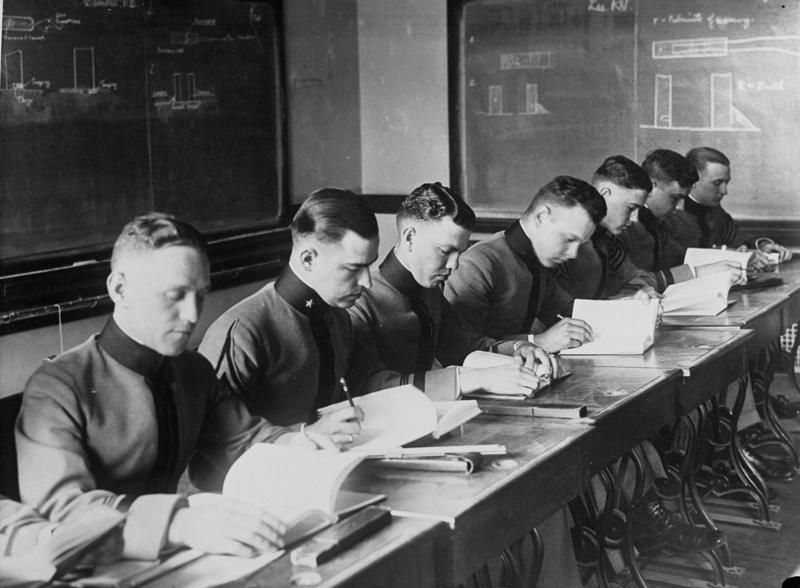An open letter written by a retired Lieutenant Colonel who served on the faculty at West Point has made its rounds on social media, prompting an outcry from West Point alumni and a direct response from the Superintendent, Lieutenant General Robert Caslen.
The letter has surfaced in response to the publication of a sworn statement, and the associated attention it received, he wrote in 2015 following his interaction with then-Cadet Spenser Rapone, who has since been outed as an avowed Communist and is now the subject of multiple investigations from the Army.
Lieutenant Colonel Robert Heffington, who has since retired from the Army, allegedly penned the open letter to all West Point graduates in order to share his observations about the state of the Academy, saying that he “personally witnessed a series of fundamental changes at West Point that have eroded it to the point where I question whether the institution should even remain open.”
Heffington cites the attention that Lieutenant Spenser Rapone received in the fallout of his social media exposure as indicative of an overall decline in standards and discipline at the Military Academy. He is sharply critical of senior leadership at the Academy, saying they are all complicit in the erosion of values among the cadets at West Point.
Heffington focuses particularly on the Cadet Honor Code. The Cadet Honor Code is the foundation of the values that West Point teaches its cadets during their four-year training to become Army Officers. It says “A Cadet will not lie, cheat, steal, or tolerate those who do.” A Cadet who violates any of those tenets of the Honor Code will go before what is called an “Honor Board,” where their case will be presented in a similar manner to a criminal trial. Witnesses are called, statements are prepared, and a judgment is rendered by their fellow Cadets as to whether or not they will be “found” to have violated the Honor Code. If “found,” punishment historically has been severe, almost exclusively resulting in their expulsion from West Point.
Heffington lists examples of his own participation in these Cadet Honor Committee hearings where Cadets are supposedly not “found,” despite clear evidence, and says that his own testimony was discounted, to include receiving undue command influence from the Commandant of Cadets to drop a pending honor investigation into one of Heffington’s students.
Heffington’s letter says this is largely an effort to keep athletes within the Corps of Cadets, and shield them from the rigorous standards that would otherwise get them expelled. He says that academic standards have been dramatically relaxed in order to get cadets to pass, particularly amongst athletes, some of whom Heffington says are “borderline illiterate.”
In response to the furor surrounding Lieutenant Rapone’s very public actions on social media, the Superintendent of West Point, Lieutenant General Robert Caslen, released his own statement to alumni on October 11th, where he said two investigations into Rapone are ongoing. He also commented on Heffington’s letter, saying he is aware of the allegation leveled against senior leadership, to include being called “liars.”
“I do not take these allegations lightly,” Caslen wrote, “and will provide you a response with facts addressing his allegations and then you can judge for yourself whether our graduates are serving our Nation with character imbued with the values of Duty, Honor, and Country, or not.”
There is an aspect of West Point culture that has been around for decades, and probably for over a hundred years. It’s called a “Corps Has” mentality. “Corps Has” is short for “the Corps has gone to hell,” referring to each successive class having it easier than the one before it. I heard it countless times while a Cadet from graduates and instructors. Almost any change to rules or to the Cadet lifestyle were labeled as “Corps Has.” As the saying went, things were always harder, and standards always strictly enforced, in the “Old Corps.”
I cannot comment on anyone else’s perceptions, and only have my own perspective as a former Cadet, but I can say that during my time the Honor Code was taken extremely seriously. Many of my classmates were expelled, quickly, after being found for popping off with even seemingly innocuous lies. Cheating was also rigorously sniffed out, and we went to great lengths to ensure our work could not even be mistakenly taken as plagiarism. From my perspective, the Honor Code, at least from 2006 to 2010, was ruthlessly enforced.
I was not an instructor, so I have no ability to comment on the internal workings of the academic staff. However, I can confirm that short of a vast conspiracy, no one who is borderline illiterate can possibly survive that academic environment.
Already have an account? Sign In
Two ways to continue to read this article.
Subscribe
$1.99
every 4 weeks
- Unlimited access to all articles
- Support independent journalism
- Ad-free reading experience
Subscribe Now
Recurring Monthly. Cancel Anytime.










COMMENTS